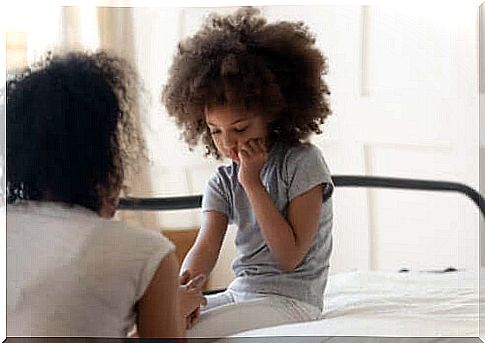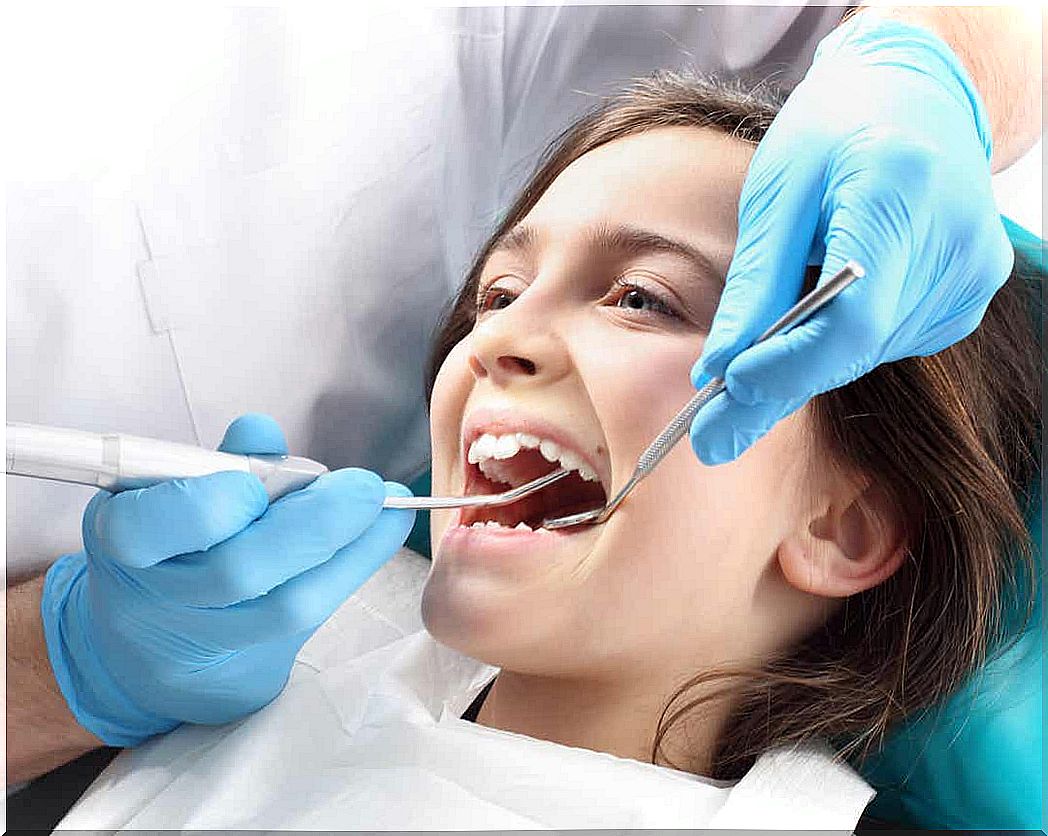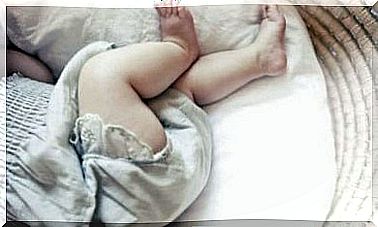Stress And Teeth Grinding In Children, What Is The Connection?

Stress and teeth grinding in children have a connection that is undeniable today. While stress is not the only cause of this condition, more and more specialists in the field are saying that childhood overexertion has implications for oral health.
Stress is not just a problem for adults. Moreover, it is not exclusively expressed in the physical sphere. There are specialists who even believe that they should classify teeth grinding as a psychological problem if the situation dictates it.
As we mentioned, stress isn’t the only cause of teeth grinding in children, but we shouldn’t underestimate it either. So, in the next section, we’re going to look at what the situation is, how to detect it, and what to do if your little one grinds their teeth because of anxiety and nervousness.
Stress is not the only cause of teeth grinding in children

It would be insufficient to define teeth grinding in children as stages of stress and anxiety. That’s because we know that the causes of this condition vary and there are three main types:
- Oral: The origin of teeth grinding lies in the teeth themselves. This is the classic etiopathogenesis that dentists have always pointed out. When a child suffers from malocclusion or their dental arches are not in the position they should be, they are more likely to grind their teeth at night. This does not always require a specific approach.
- Sleep dependent: Teeth grinding is a sleep phenomenon. Children grind their teeth together while they sleep, so it makes sense to think that a change in their nighttime rhythm could be the cause of the problem.
- Psychological: This is about stress. A child who is subjected to age-inappropriate demands, or who goes through periods of existential crisis (moving, parental divorce, changing schools) may develop teeth grinding or exacerbate the grit they had previously. The act appears to be a form of response to tension—another physical symptom on top of other more classic symptoms of stress, such as palpitations or shortness of breath.
Research into the relationship between stress and teeth grinding in children
The link between stress and teeth grinding in children is not new in scientific research. Studies have long shown that anxiety and nervousness play a predominant role in this condition.
We’ve already made it clear that this isn’t the only cause, but we can’t overlook it. Especially if the child is in a situation that justifies the possibility of stress.
As early as the 1920s, experts noted that teeth grinding could be a neurotic oral habit. That is, a repetitive course of action that arose from a neurosis. Therefore, the situation was classified within psychology. For mental health science, it’s no news that the mouth is a way to drain emotions. The concerns of adults and children find a way to express themselves in this physical space.
So much so that more research along the same lines has shown that there is a direct and proportional relationship between the degree of bruxism and the intensity of stress. Children who are more stressed and have busy lifestyles grind their teeth more than others.
What does all this evidence mean? That we cannot see a child who grinds his teeth as someone with an oral disease that has nothing to do with other areas of life. Children are whole human beings who need to be approached from their biological, social and psychological realities.
How do I know if my child is affected?
The obvious signs of teeth grinding in children, whether caused by stress or oral causes, are the same. The first sign is the sound parents hear when they crunch at night. The habit is most common between the ages of 6-10 years. This coincides with tooth replacement, which also explains the higher incidence during this time of life.
At the same time, some signs are added when the phenomenon persists for months. Especially pain in the regions around the mouth, such as the lower jaw and ears.
The dentist will recognize its existence by observing the wear of the tooth surfaces. This usually happens after parents take their child to the dentist because they hear excessive grinding.
It is also possible for parents to have a consultation with another specialist, such as an ENT specialist, because of otalgia (ear pain). Or also at a pediatrician, after noticing, for example, constant headaches.
Possible treatments for teeth grinding in children caused by stress

If the origin of the child’s teeth grinding is explained by stress and not by some other cause, an emotional approach should be planned. In such a case, a consultation with a psychologist can be a way to handle the situation with the appropriate professional support.
In any case, there are habits that can reduce stress at home. Among these customs, we can mention the following:
- Reduce activities in the moments before the child goes to bed.
- Get into the habit of doing relaxing activities before bed, such as reading a story.
- Do not allow screens in bed.
- Create spaces to talk to the child about what is going on or how they are feeling. Give them the opportunity to express themselves, tell their problems and relieve themselves.
Consulting a dentist is necessary
While it may seem like teeth grinding in children is to be expected, it is advisable to have the associated consultation with a dentist. In addition to the recommended checkups by age, it is a good idea to make an appointment if you notice that the child is grinding teeth.
As parents, it is also essential to be alert to signs that may indicate stress. These will not always be obvious symptoms, nor will there be a noticeable manifestation. When in doubt, it is best to talk to your child.









